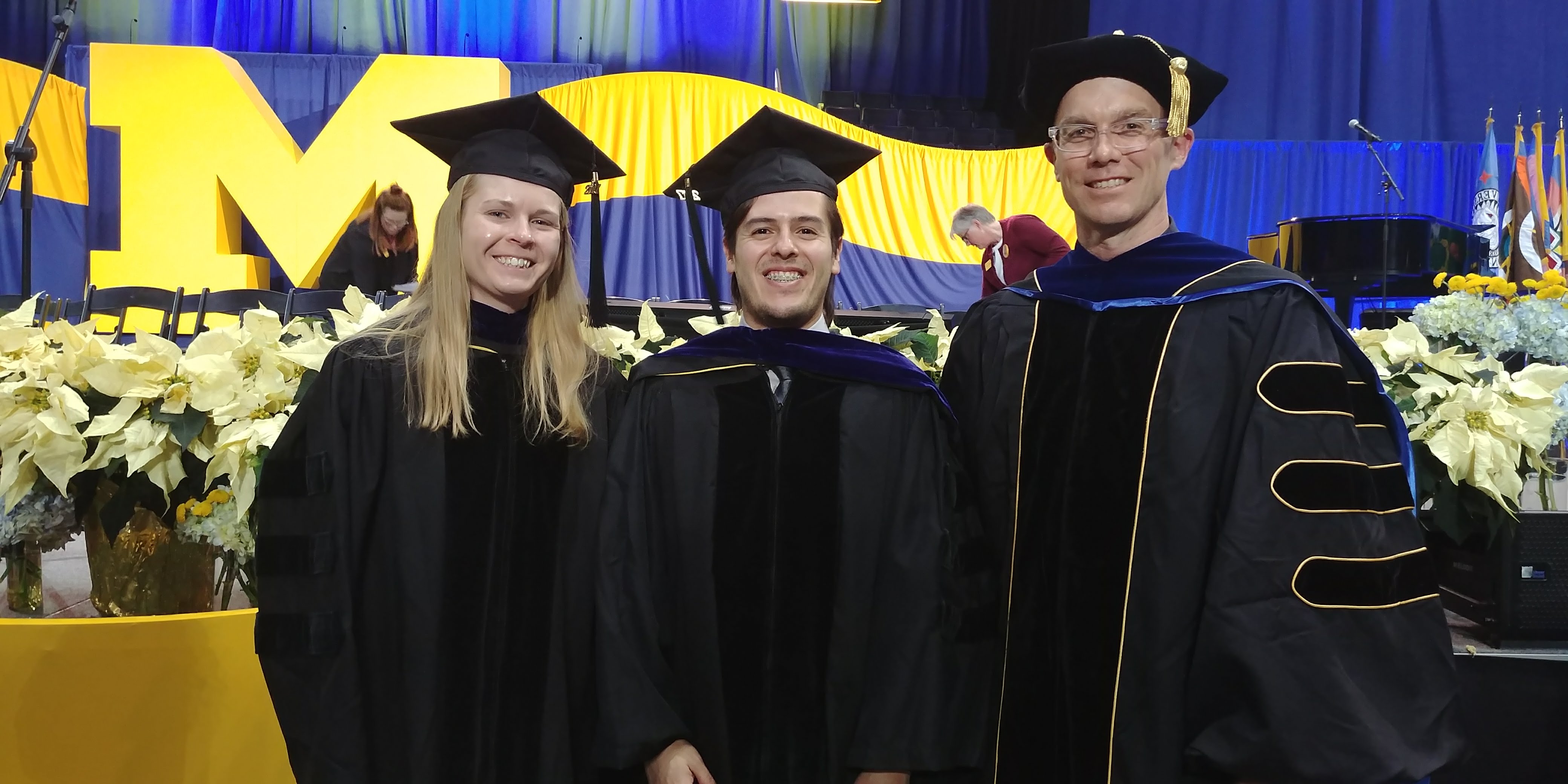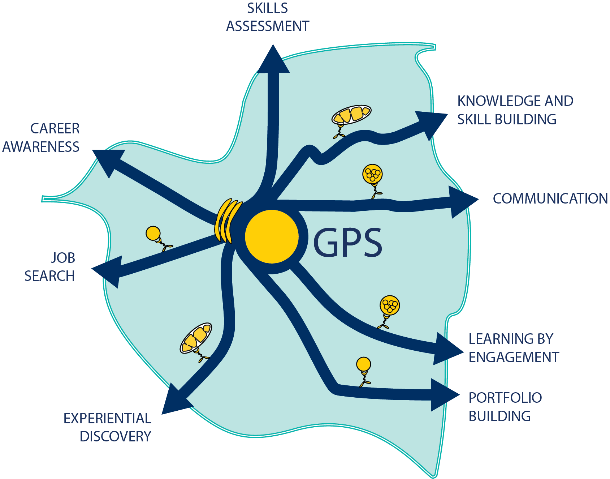
The heart of all training in the Department of Molecular and Integrative Physiology is rigorous, hypothesis-based scientific laboratory work. We believe this is a critical building block to a variety of career opportunities. We recognize a need to broaden our training experience to reflect and support a variety of career opportunities our trainees may pursue. Ultimately, our goal is to channel your passion for science into employment opportunities, in both academic and in non-academic environments including industry, education, healthcare, business, law and policy. Our faculty members are a great resource for advice on academic careers, but we recognize our limitations in ability to effectively mentor trainees outside of our own areas of academic research expertise. We also benefit from having 100s of PhD program alumni who are working in post-graduate careers across the entire spectrum of the biomedical workforce. We connect students with these alumni via invited career talks and for informational interviews.
The Office of Graduate and Postdoctoral Studies has many resources and career development opportunities for the students in all 14 graduate programs in PIBS. This web page also provides other career development resources both here at University of Michigan and elsewhere that can help you explore career opportunities both outside of and within academia. If you learn of a good resource, please let the graduate program directors know so this can be kept up to date. Our goal is not to duplicate the efforts of the career center, but rather to provide a gateway to the resources our trainees have found most useful in their own career investigations.
Office of Graduate and Professional Studies Career and Professional Development Office
OGPS provides the largest number of career development opportunities for all 14 programs in PIBS as well as for postdoctoral fellows. They employ three career development professionals who provide advising and arrange programming. Their website is rich in resources, has a calendar of upcoming events, and links to other career development resources. https://ogps.med.umich.edu/resources/cpd/

University of Michigan Career Center
The Career Center has programs targeted at graduate students, including one-on-one meetings with professional career counselors.
UM Graduate Student Professional Development Calendar
This is a calendar of professional development events on campus that is assembled by the Rackham Graduate School. It lists events from many departments and areas in one location. There is information on workshops, lectures, events, etc. all across campus.
To access this calendar, go to http://www.rackham.umich.edu/professional-development
To add it to your Google calendar, click on the + in the lower right hand part of the calendar display, copy the location below and paste it into the "other calendars" search box on your Google calendar.
Initial Career Exploration
http://careercenter.umich.edu/article/non-academic-job-search
http://careercenter.umich.edu/resource/595
http://www.branchingpoints.com/
http://www.phdcareerguide.com/index.html
http://howtoleaveacademia.com/
http://myidp.sciencecareers.org/
http://paper.li/nlvanderford/1363955074
http://whatareallthephds.tumblr.com/
http://blogs.nature.com/naturejobs/2013/05/21/careers-for-scientists-away-from-the-bench
http://bitesizebio.com/9068/how-to-pursue-a-non-research-career-while-in-graduate-school/
http://careercenter.umich.edu/article/informational-interviewing
NIH career training workshop
NIH holds an annual career symposium, typically in May. Past MIP trainees who have attended have found this very useful.
https://www.training.nih.gov/nih_career_symposium
Individual Development Plan
The preparation of an individual development plan (IDP), and discussing this with your mentors is important to help guide your education into a career path. Starting this process early in your education will allow you to better sculpt this path and optimize the combination of your research and courses with other useful tools including workshops and fellowships.
http://myidp.sciencecareers.org/
Postdoctoral Opportunities Offering Intensive Career Preparation Beyond Research (NIH IRACDA)
The purpose of the IRACDA program is to develop a diverse group of highly trained scientists to address the nation's biomedical research needs. The program promotes consortia between research-intensive institutions (RII) and partner institutions that have a historical mission and a demonstrated commitment to providing training, encouragement and assistance to students from groups underrepresented in the biomedical research enterprise of the nation. The IRACDA program combines a traditional mentored postdoctoral research experience with an opportunity to develop academic skills, including teaching, through workshops and mentored teaching assignments at a partner institution. The program is expected to facilitate the progress of postdoctoral candidates toward research and teaching careers in academia. Other goals are to provide a resource to motivate the next generation of scientists at partner institutions and to promote linkages between RIIs and partner institutions that can lead to further collaborations in research and teaching.
https://www.nigms.nih.gov/Training/CareerDev/Pages/TWDInstRes.aspx
